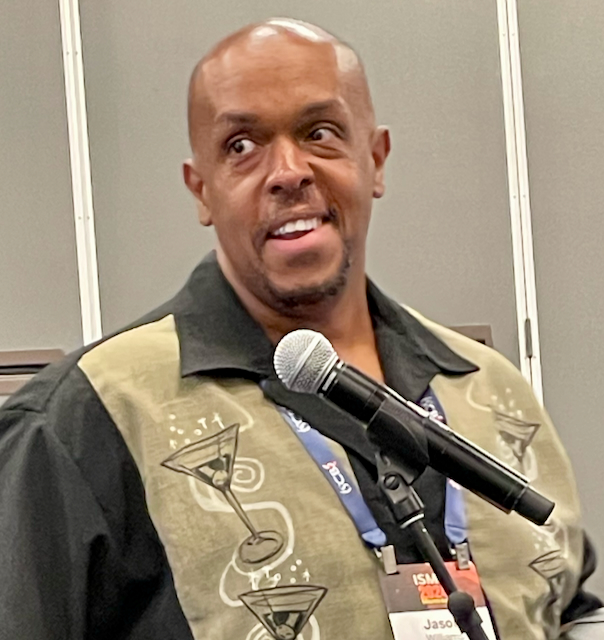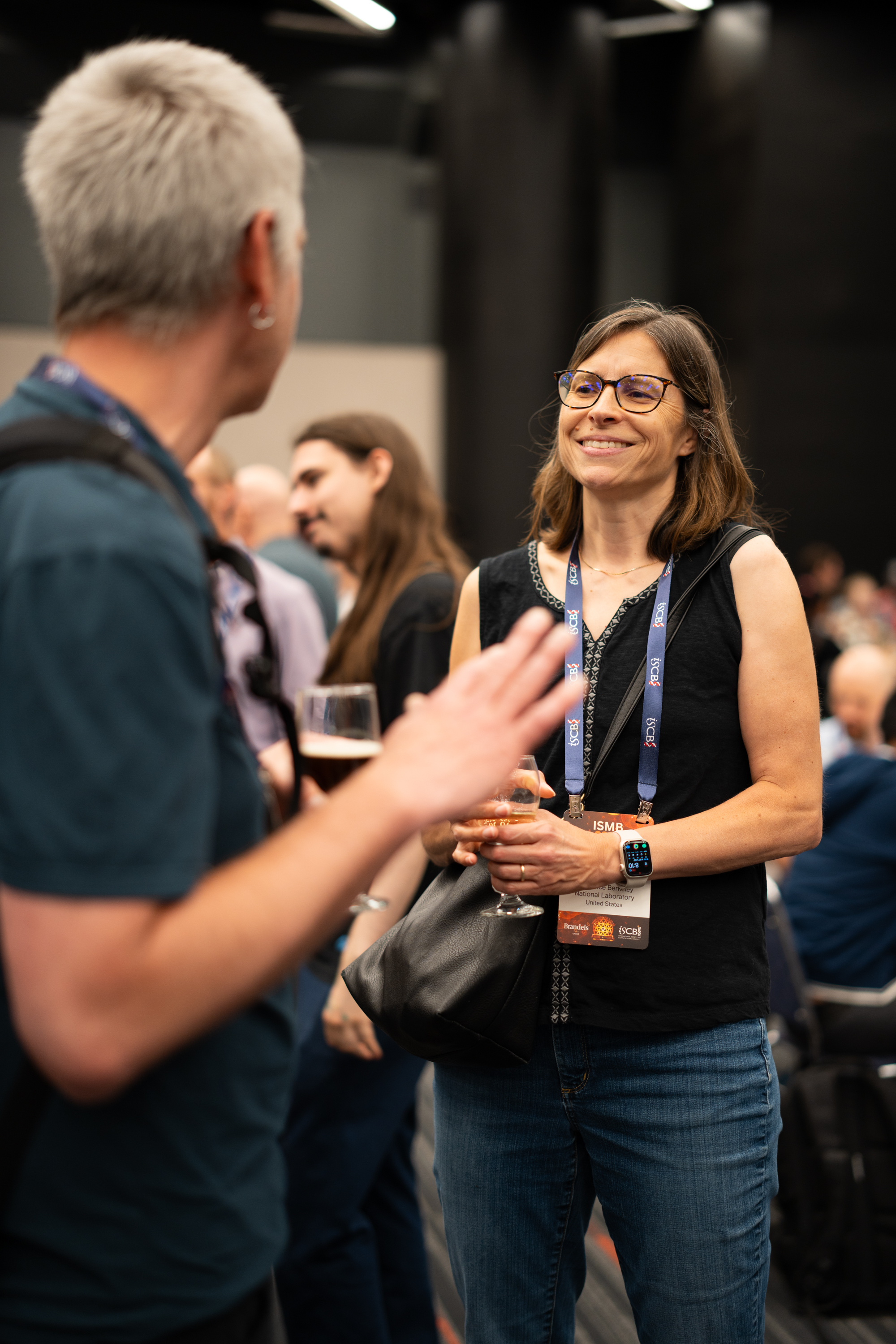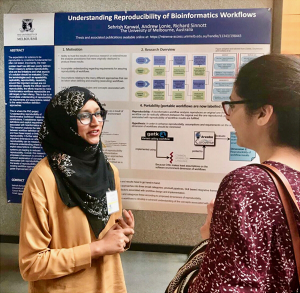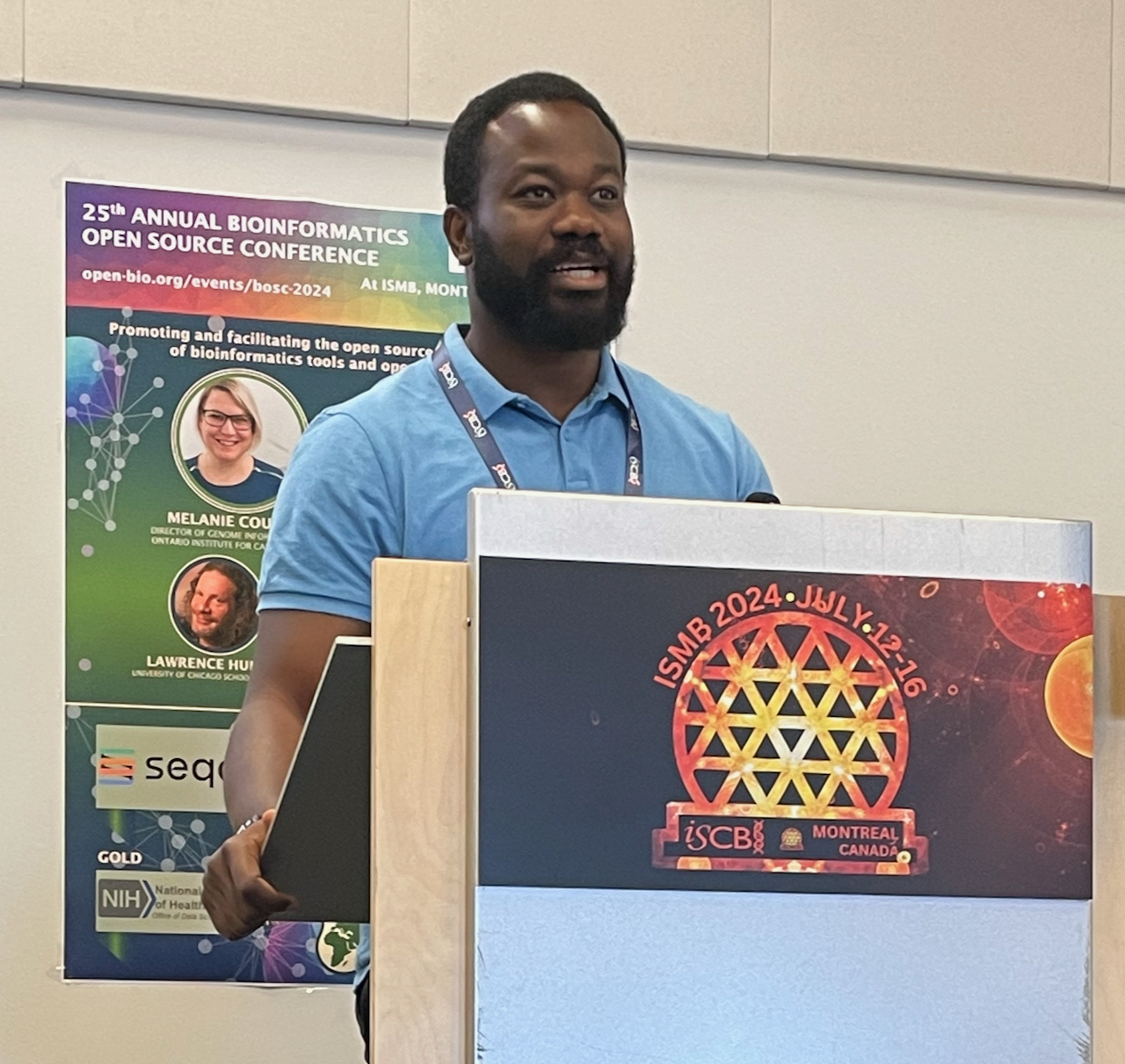What is BOSC?
The B ioinformatics O pen S ource C onference promotes and facilitates the open source development of bioinformatics tools and open science.
Since it launched in 2000, BOSC has been part of ISMB every year except for 2018 and 2020, when it partnered with the Galaxy Community Conference.
BOSC 2026 will take place July 14-15 as part of ISMB 2026) in Washington DC (and online).

BOSC aims to:
- Inform the research community of important developments in open source bioinformatics
- Provide a focused environment for developers and users to interact and share ideas about open source approaches in bioinformatics
- Make connections between participants that could enhance the open source ecosystem and lead to collaborations
- Promote open science, with its focus on sharing data and tools, transparency, reproducibility, and data provenance

Previous BOSCs
- BOSC 2025 took place July 21-22, 2025 in Liverpool, UK (as part of ISMB/ECCB 2025).
- BOSC 2024 The 25th annual BOSC was held July 15-16, 2024, as part of ISMB 2024, in person in Montréal, Canada, and online.
- BOSC 2023 took place July 26-27, 2023 as part of ISMB/ECCB 2023, in person in Lyon, France, and online.
- BOSC 2022 took place July 13-14, 2022, as part of ISMB 2022, in person in Madison, Wisconsin, USA, and also online.
- BOSC 2021, part of ISMB/ECCB 2021 online, took place July 29-30, 2021.
- BOSC 2020 online (as part of Bioinformatics Community Conference, BCC2020)
- BOSC 2019 Basel, Switzerland (as part of ISMB/ECCB 2019)
- BOSC 2018 Portland, Oregon (with the Galaxy Community Conference as GCCBOSC 2018)
- BOSC 2017 Prague, Czech Republic
- BOSC 2016 Orlando, FL, USA
- BOSC 2015 Dublin, Ireland
- BOSC 2014 Boston, MA USA
- BOSC 2013 Berlin, Germany
- BOSC 2012 Long Beach, CA, USA
- BOSC 2011 Vienna, Austria
- BOSC 2010 Boston, MA USA
- BOSC 2009 Stockholm, Sweden
- BOSC 2008 Toronto, Ontario, Canada
- BOSC 2007 Vienna, Austria
- BOSC 2006 Fortaleza, Brasil
- BOSC 2005 Detroit, MI USA
- BOSC 2004 Glasgow, UK
- BOSC 2003 Brisbane, Australia
- BOSC 2002 Edmonton, Canada
- BOSC 2001 Copenhagen, Denmark
- BOSC 2000 San Diego, CA USA

CollaborationFest
In recent years, the BOSC meetings have been preceded or followed by a two day CollaborationFest, an informal collaborative work event. Initially called CodeFest, the event was renamed CollaborationFest in 2018 to reflect the fact that it’s not just about coding.

Get involved
There are many ways to get involved with the conference:
Attend
There’s no conference without attendees! Your presence is crucial to the success of the event, and we’re always happy to see new faces. We encourage everyone to attend the main meeting and/or CollaborationFest, interact with other attendees, and post about their experience. And tell your colleagues and friends who aren’t there that they should attend next year!

Present your work
Our focus is on open source work and communities. Code presented at BOSC must be open and properly licensed. If your work is more about training materials than code, we’d like your materials to be open and licensed so others can benefit from it!
In the early days of BOSC, an abstract that was basically “I wrote some bioinformatics code, and it’s open source” was good enough to merit at least a short talk, but we’ve grown since then. Even if a project is new and therefore doesn’t yet have a community, there should be some sort of plan for building a community of users and/or developers.
We try to provide a platform to everyone who wants to present appropriate work. We have “long” talks (typically 17 minutes + 3 minutes for questions), short/“lightning” talks (5 minutes), and posters.
Review abstracts

Conference abstracts are reviewed by volunteers who express their interest. We encourage reviewers to be constructive in their comments, and some choose to sign their reviews. Most reviewers are assigned about 6 abstracts to review. We acknowledge our reviewers on the conference website and in the program.
Join the Organizing Committee
The organizing committee does most of the work to make BOSC a successful meeting. Committee members help write communications to reviewers, participants, and attendees; decide on the program; design conference materials; find dinner locations; chair sessions during the conference; and more! The workload gets heavy in two waves: first when abstracts are being reviewed and the program is being put together, and again as the conference gets closer. Most organizing committee members start out by becoming abstract reviewers.
We acknowledge organizing committee members on the conference website and in the program, and they are entitled to complimentary conference registration if their institution/employer can’t cover it.

Sponsor BOSC and/or CollaborationFest
The Open Bioinformatics Foundation welcomes donations to help support the BOSC and CollaborationFest events. Please see the Sponsors page for more information.